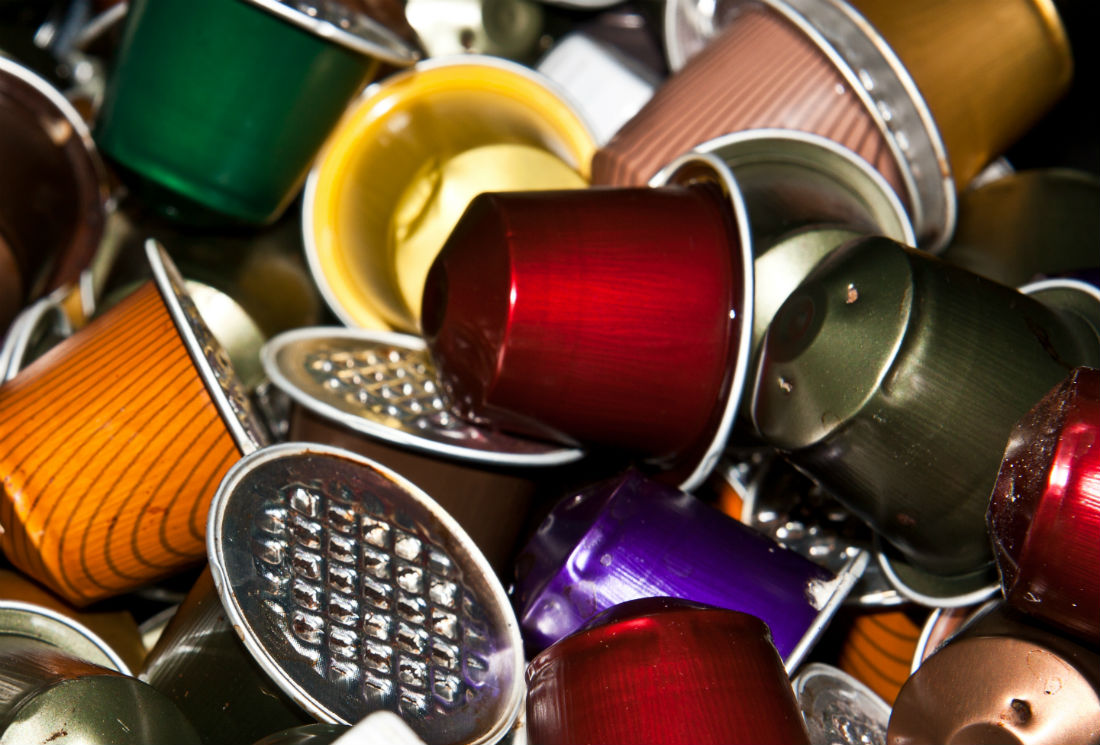Can Coffee Pods Ever Be Considered Sustainable?
Call me cynical, but am I alone in not buying into Nespresso’s sustainability spin? This article posted on Procurious highlights the great work that the coffee pod producer is doing to develop a sustainable supply base by investing in infrastructure and capability in war torn South Sudan. Those efforts are worthy of praise, no question about it, but I can’t help but feel we’re having the wool pulled over our eyes by Clooney and co.
You see, a implementing a sustainable supply chain initiative or marketing your sustainability policy does not a make a business sustainable and I’d argue that Nespresso’s core business is not in the slightest way sustainable.
Nespresso (and it’s competitors) pods have boomed in popularity in recent years. It was estimated that in 2013 Nesspresso sold 28 billion coffee pods to consumers. Annual sales figures have surely climbed further in the proceeding two years.
What’s in your morning coffee?
But lets focus on the 2013 figures. An article on the theconversation.com suggests that producing 28 billion coffee pods would require 28 million kilograms of Aluminium. Given that most local recycling facilities are not yet able to process aluminium coffee pods, I’m willing to bet that a huge percentage of these caffeinated containers have found their way into landfill.
It’s not only bulging landfills that raise sustainability concerns around aluminium coffee pod industry. While marketing from Aluminium producers focuses on the metals’ ‘infinite recycling potential’, it fails to mention that mining, refining and smelting the metal is one of the most energy and water intensive industrial processes that humankind undertakes. Also, if we don’t recycle the Aluminium, which in Nespresso’s case, we don’t, the recyclability of the metal is inconsequential.
The fact of the matter is that a decade ago, our morning cup of coffee required no aluminium and produced next to no personal waste. Today our collective morning cuppa requires 28 million kilograms of Aluminium per year and results in us throwing something in the rubbish bin everyday. Even if the coffee is produced ethically and the farmer is receiving a fair wage, can this behaviour really be called sustainable?
Jon Dee, the head of environmental group DoSomething and founder of National Recycling Week weighed into the debate claiming that “George Clooney has almost single-handedly launched an entire new waste stream globally as a result of fronting the Nespresso adverts, it shows the Clooney effect has undoubtedly been enormous in this. But George Clooney – for a guy who is so switched on to civil rights and other issues – to lead the charge in causing such environmental damage and waste and other issues is really disappointing.’’ I’m not sure I’d go as far as holding Mr Clooney responsible for creating the waste, but the company that employ him certainly have some questions to answer.
They’ll never be recyclable
Even John Sylvan, the inventor of the Keurig K-Cup (another brand of coffee pod) has expressed regret about the product, conceding that his brainchild is expensive, addictive “like a cigarette” and will “never be recyclable”. Speaking to The Atlantic he said “I feel bad sometimes that I ever did it”.
Like most matters concerning sustainability, the power lies with the consumer. What we buy will dictate what they produce and how they produce it. At the moment we seem spellbound with convenience (or is it laziness?). Western consumers like to think they are supportive of the environment… so long as it doesn’t impact on an increasingly long list of creature comforts. Large brands are wise to this and have adapted their marketing messages accordingly.
That’s why companies like Nespresso are able to wrap a green ribbon around business that has fundamentally changed the amount of waste we produce and call it sustainable.
